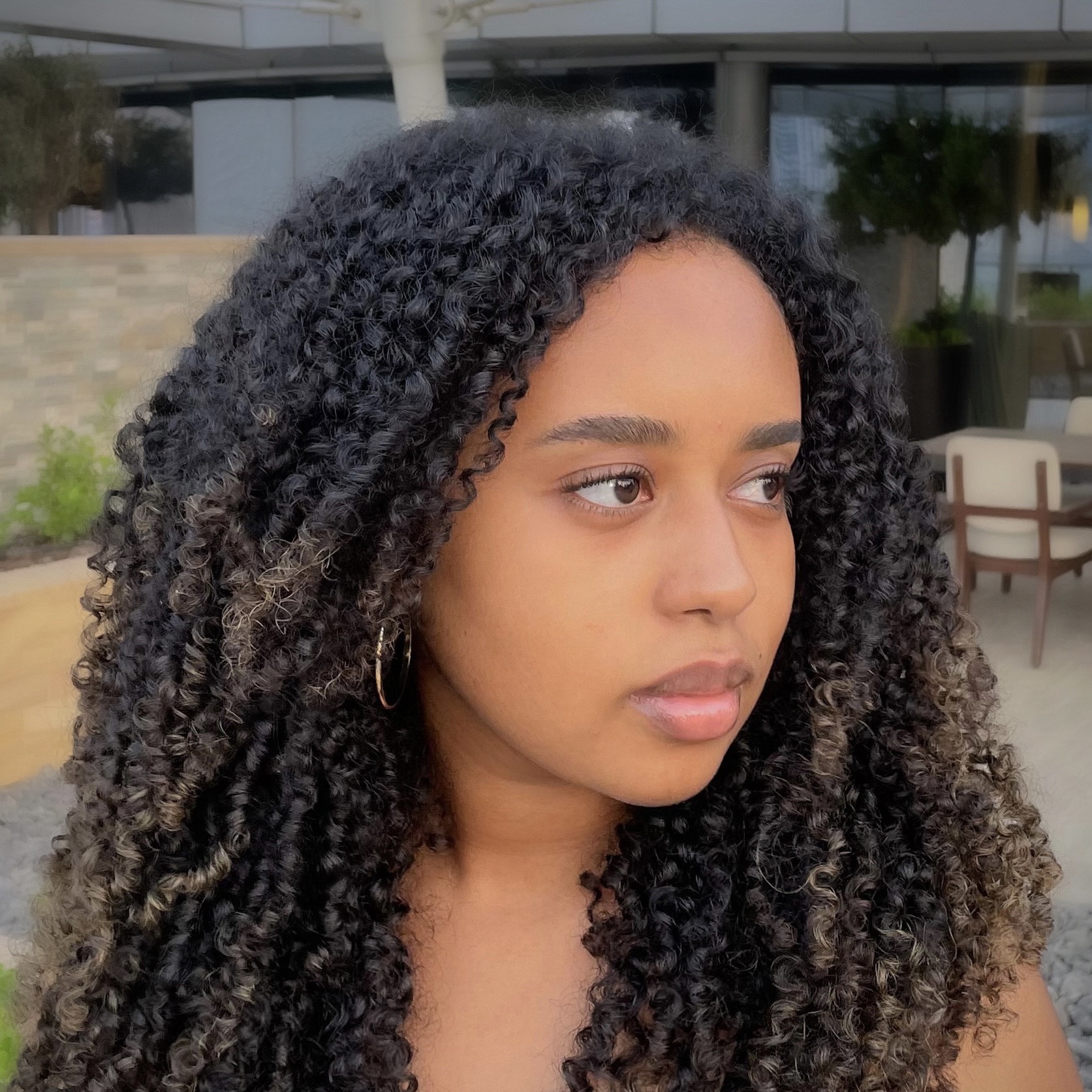Perhaps to be Ethiopian is to be a ledger of tragedies. One tattered jelly
sandal in a wasteland. A dry injera roll. The nape of a matted afro.
War functions as an exponent: when raised to a certain power, a pearl
of tension will multiply into a civil war, then a hybrid war, and finally a [ ]
When asked about my country’s pain I answer yes.
Perhaps to be Ethiopian is to have cousins dangling from laundry lines and
poverty for an uncle. Maybe ferenjs will convince a distant relative to sell
our land for some Euros in a Swiss bank.
Like a yawn, an unspeakable breaks open into another and another. There’s no
settling of scores. Just a baton of wreckage passed on.
A friend says we’re not fighting for ideology but for survival, and one thing
Ethiopia knows how to do is survive.
Perhaps to be Ethiopian is to be good flesh adopting the stench of spoil—
to invite peace but have a fist arrive.
For years, incisors have latched onto our jugulars. Tell the scholars
postcolonialism is a farce. My people are hemorrhaging in present tense.
Let there be no slippery words: America translates to Operation Inciting
Instability or how-to-exploit-shithole-nations.
Perhaps to be Ethiopian is to have someone else spinning the thread.
They know that we know that they know this: it’s always a few hippos
making the riverbank split.
A hot mouth, hope is an engine we keep feeding. All gears and wheels—how
it never abandons us.
Perhaps to be Ethiopian is to suck teeth at CNN when an American
president declares, Blow up that dam.
I have had my fill of western media and its piss.
The Nile comes to me in a dream, shouting, Who betrays you? I reply, Even you
wash the soil from our hills. You don’t get to ask me that.
Perhaps to be Ethiopian is to have a different enemy but the same battle
as your father’s father’s father. The knowledge that resistance is a decision
on how to die.
A prompt for The Washington Post: “Why America and Egypt Back Ethno-
Nationalist Militias in Ethiopia.”
My people have a saying: a rat’s witness is another rat. I’ve learnt the world
is an elaborate pest burrow, and my country is trying to claw her way out.
Perhaps to be Ethiopian is to be a lion cub rolled tight in an eggshell.
Amnesty International estimates a pyramid of atrocities. But the children
petting Kalashnikovs are not granted a slot on this hierarchy. Their worth,
some drool that’s easily wiped clean.
For solace, I’ve built an Ethiopia that’s meant to be: shepherd girls at dawn
talking to their sheep, masenqos in a dim bar, mesobs that are never empty,
humid markets, ululations from a wedding, tattooed grandmother hands—
Perhaps to be Ethiopian is to be a stubborn register of raptures. A fin of aloe
rejecting the forest-fire.


